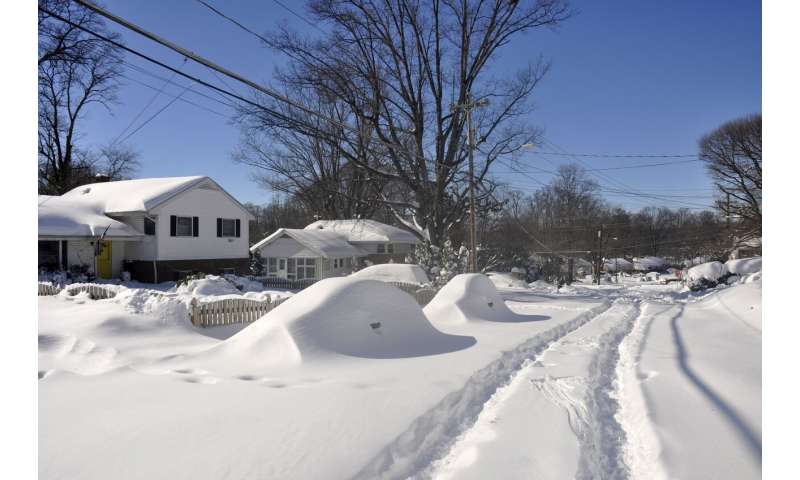A relationship between severe winter weather and Arctic warmth?

A new review article published in Nature Climate Change evaluates whether severe winter weather in the United States, Europe and Asia is sensitive to Arctic temperatures. The lead author is NSF-funded scientist Judah Cohen, director of seasonal forecasting at Atmospheric and Environmental Research.
Despite a warming planet, winter weather has remained surprisingly resilient across the mid-latitudes of the Northern Hemisphere, and the winter weather headlines have often been about severe cold, heavy snowfalls, and the polar vortex. The unexpected frequency of severe winter weather was not projected by global climate models used to study climate change. It has been challenging, says Cohen, for climate scientists to attribute the recent streak of cold, snowy winters to a particular cause.
One relatively new idea has been to link severe winter weather across the United States, Europe, and Asia with Arctic amplification, the accelerated warming of the Arctic region at a rate two to three times faster than the rest of the globe. The accelerated Arctic warming was thought to be due mostly to rapidly melting Arctic sea ice.
One camp of consensus represents studies arguing that Arctic amplification is contributing to more severe winter weather. Conditions favorable for disrupting the polar vortex increase the probability of severe winter weather in the United States, Europe, and Asia, these scientists believe.
The other camp of consensus cites studies based on simulations of low Arctic sea ice using global climate models. The majority of these studies conclude that any observed increase in recent severe winter weather is likely due to chance and not Arctic amplification. In the simulations, sea ice loss does not result in more polar vortex disruptions and contributes to milder winter weather (not severe winter weather) across the United States, Europe and Asia.
The review article discusses why Arctic warming is complicated, and not due solely to melting sea ice or snow cover. Increasing water vapor and clouds, as well as the transport of heat and moisture from lower latitudes, are all contributing to accelerated Arctic warming, Cohen and colleagues report
More information: J. Cohen et al. Divergent consensuses on Arctic amplification influence on midlatitude severe winter weather, Nature Climate Change (2019). DOI: 10.1038/s41558-019-0662-y
No comments:
Post a Comment